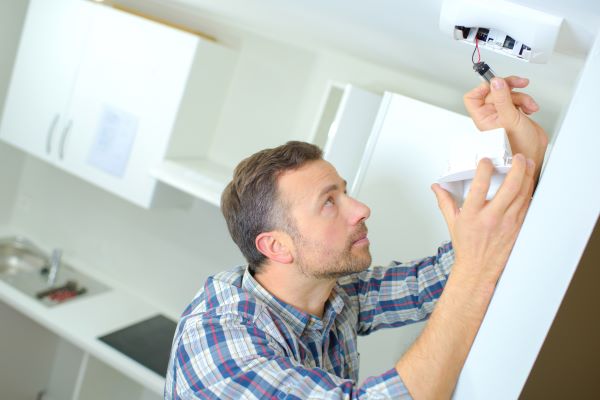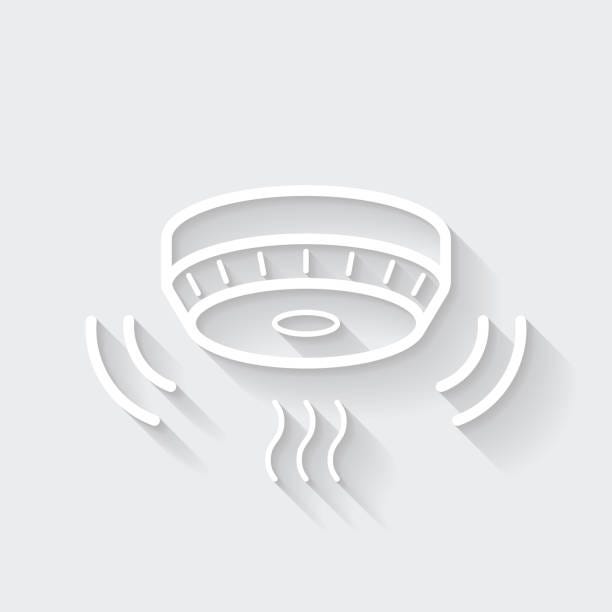

Smoke detectors beeping randomly can be a frustrating and alarming experience. This comprehensive guide will walk you through troubleshooting these false alarms, offering practical solutions to get your smoke detectors back to working properly. Understanding the common causes of intermittent beeping and how to effectively diagnose and resolve the issue is essential for ensuring home safety. We’ll cover everything from simple battery replacements to more complex electrical issues. This article will systematically address each potential problem, from basic checks to advanced troubleshooting techniques.
Understanding Why Smoke Detectors Beep
Common Causes of False Alarms
Smoke detectors, while vital for safety, can sometimes trigger false alarms, leading to unnecessary stress and concern. Many factors can contribute to this, from minor issues like low batteries to more complex problems like faulty wiring or electrical interference. Identifying the specific cause of a false alarm is crucial for effective troubleshooting and restoration of safety.
Checking the Battery and Wiring
Battery Replacement
One of the most common reasons for a smoke detector beeping randomly is a low or dead battery. Replacing the batteries promptly is essential for continuous, reliable operation. Follow the manufacturer’s instructions carefully for safe and efficient battery replacement.
Related Post : Roof Leaks Developing After Storms? How to Identify and Repair Quickly
Inspecting Wiring Connections
Ensure that all connections, both internal and external, between the smoke detector and the power source are secure and undamaged. Loose wiring can cause intermittent beeping, even if the battery appears to be functioning correctly.
Identifying Electrical Interference
Electrical Interference Causes
Electrical interference, including fluctuations in voltage or stray currents, can disrupt the smoke detector’s proper operation, resulting in random beeping or sporadic activations. These issues are often caused by faulty wiring in other parts of the house, and often manifest as erratically beeping smoke detectors.
Addressing Electrical Interference Issues
If you suspect electrical interference, consult a qualified electrician to diagnose and rectify the underlying problem. A professional inspection can identify and fix potential issues in your home’s electrical system, preventing future false alarms and ensuring the proper functioning of your smoke detectors.
Checking for Obstructions and Malfunction
Removing Obstructions
Sometimes, dust, debris, or other obstructions near the smoke detector sensor can trigger false alarms. Check the sensor area for any visible obstructions and carefully remove them to ensure clear airflow.
Malfunctioning Smoke Detector
Occasionally, the smoke detector itself might be malfunctioning. If the issue persists despite checking the batteries, wiring, and environment, it’s important to consider replacing the device. Contact your manufacturer or a local home safety specialist for assistance with replacing the malfunctioning unit.
Implementing Maintenance Practices
Regular Maintenance Checks
Regular maintenance is essential to prevent false alarms and ensure the longevity of your smoke detectors. Establish a schedule for checking batteries, inspecting wiring connections, and removing any obstructions. An annual check-up from a professional is recommended.
Choosing High-Quality Detectors
Investing in high-quality, reliable smoke detectors is crucial. Choosing well-regarded brands and models with robust construction and comprehensive features can minimize the incidence of faulty or false alarms over time.
Dealing with Installation Errors
Proper Placement
Smoke detectors must be installed correctly to function optimally. Ensure the detectors are placed in accordance with manufacturer instructions and local building codes. Incorrect placement can contribute to inaccurate readings and frequent false alarms.
Incorrect Installation
Inspect the detector’s installation for any potential problems. If there are any loose or damaged components, or the smoke detector isn’t properly fastened, it can affect performance, leading to false alarms.
Utilizing Home Safety Apps and Services
Smart Home Technology
Some smart home systems and applications can provide real-time monitoring and alerts for smoke detectors. These apps can notify you of any issues or unusual activity, allowing for proactive maintenance and immediate responses to possible emergencies.
Additional Safety Considerations
Prevention Measures
Maintaining a fire-safe environment in your home can significantly reduce the frequency of false alarms. Regular maintenance and timely repair of any electrical issues can decrease the likelihood of these false alarms.
Conclusion (again, in proper conclusion format)
In conclusion, troubleshooting smoke detectors that are beeping erratically involves a systematic approach. By checking the batteries, ensuring proper installation, and ruling out any potential hazards, you can regain peace of mind. Remember, a malfunctioning smoke detector can lead to serious consequences, so address these issues promptly. If you’re unsure about any step or if the problem persists, consult a qualified electrician or a professional home safety inspector for further assistance.